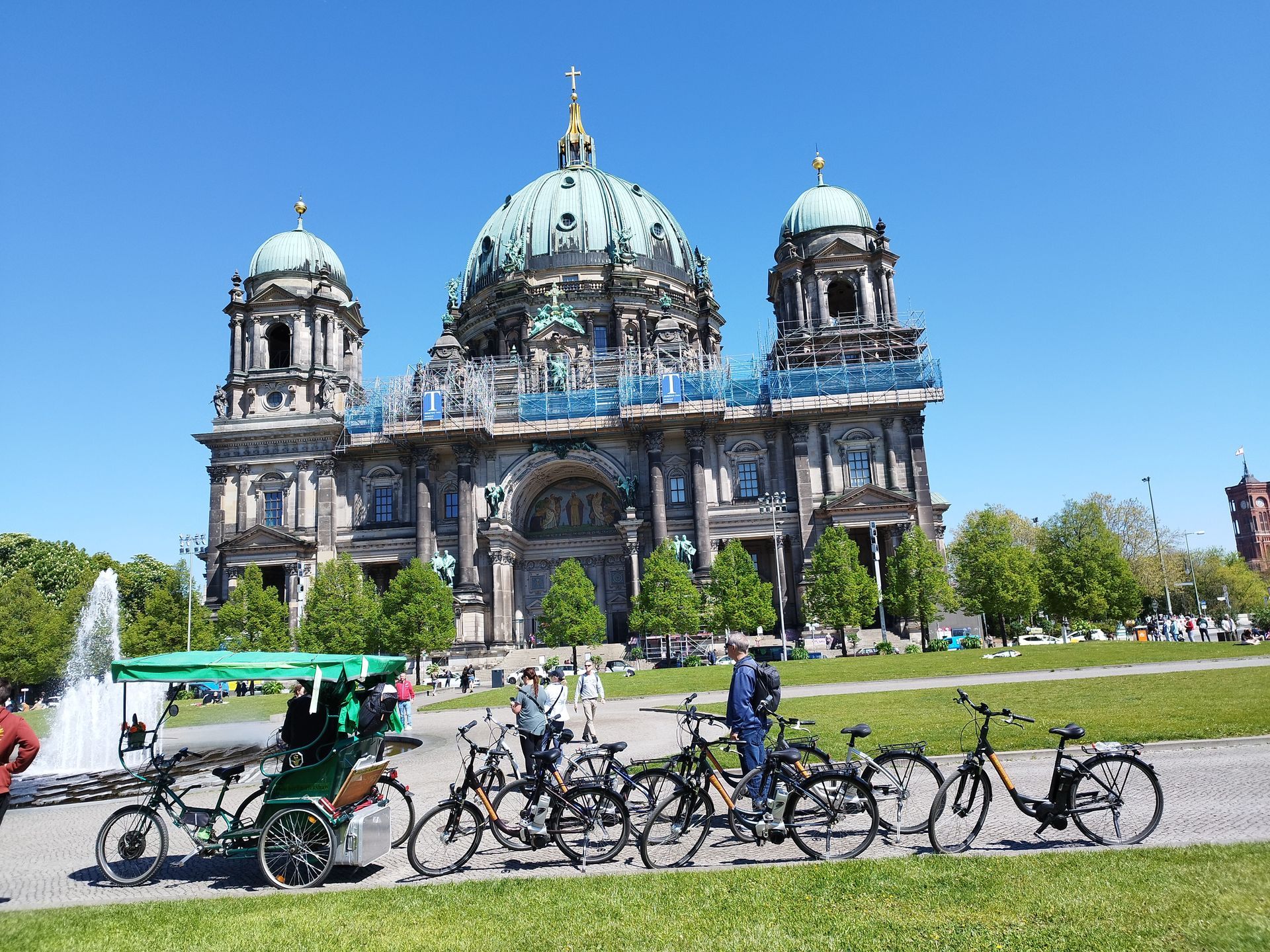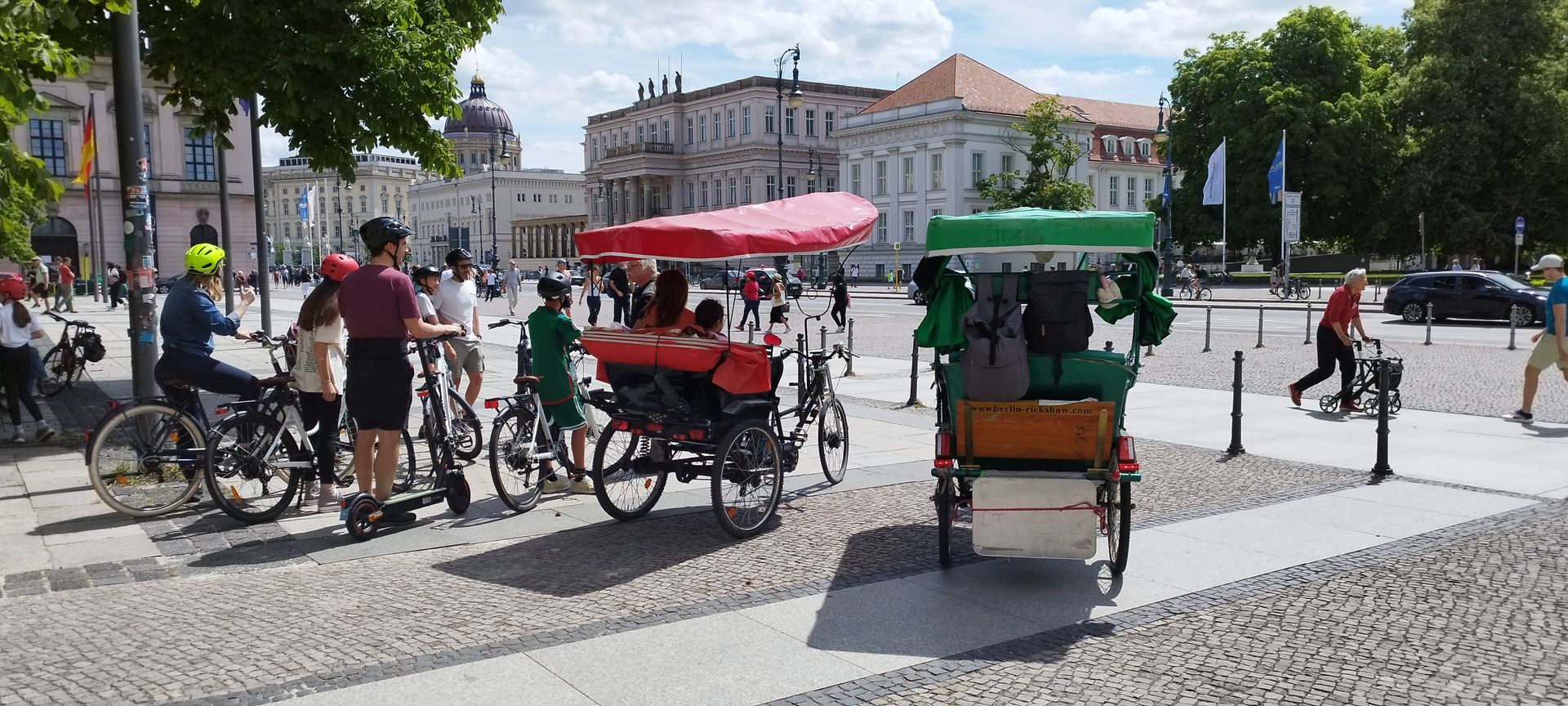Walking Tours in up to public transport / Bike / E-bike / E-scooter / Minivan Whatsapp +49 (0)163 0206 17915% Black Friday Discount Bookings 2025 (until 01-01-2025)
We offer private and daily shared tours in small groups. Our management organization specializes in Berlin tourism and business experiences.
Berlin Excursions
Reducing Avoidable Vehicle and Air Travel: A Key Element for Sustainable Transportation
The transportation sector is responsible for a significant portion of global greenhouse gas emissions, with cars and aeroplanes being some of the most carbon-intensive forms of transportation. While transitioning to low- and zero-carbon technologies is essential, it may not happen fast enough to decarbonize the entire transportation sector at the necessary speed and scale. Additionally, complete electrification of cars, buses, and trucks would pose challenges due to increased electricity demand. Therefore, we need to implement solutions that will help reduce emissions while also addressing other transportation-related issues, such as traffic congestion, pedestrian safety, and equitable transportation access.
One critical aspect of sustainable transportation is reducing avoidable vehicle and air travel. This involves limiting the use of cars and aeroplanes, especially for short distances where other modes of transportation could be more efficient and sustainable. Doing so can significantly reduce carbon emissions, traffic congestion, and air pollution and promote healthier lifestyles and more equitable transportation access.
To reduce avoidable vehicle travel, we must prioritize public transportation, cycling, and walking as alternatives to driving. Public transit is more sustainable and efficient than private cars and can significantly reduce traffic congestion and emissions. However, for public transportation to be viable, it must be safe, convenient, and accessible. This requires significant investments in infrastructure, such as dedicated bus lanes, bike paths, and pedestrian walkways, as well as reliable and affordable public transportation systems.
Cycling and walking are also excellent alternatives to driving, especially for short distances. These modes of transportation are environmentally friendly, promote physical activity and mental well-being, and can reduce traffic congestion. To encourage cycling and walking, we need to invest in infrastructure, such as bike lanes, pedestrian crosswalks, calming traffic measures, and public education campaigns to promote these modes of transportation.
Reducing avoidable air travel is another critical aspect of sustainable transportation. Air travel is one of the most carbon-intensive forms of transportation and is often preventable for short distances. Instead of flying, we can use alternatives such as trains, buses, or even cycling and walking for short distances. While these alternatives may take longer, they can be more sustainable, affordable, and enjoyable than flying.
Reducing avoidable vehicle and air travel also requires changing mindset and behaviour. We must shift from a culture of individual car ownership and frequent air travel to one that prioritizes sustainable, efficient, and equitable transportation. This requires a significant shift in public attitudes and government policies, including incentives for sustainable transportation options and disincentives for high-carbon options.
In conclusion, reducing avoidable vehicle and air travel is a key element of sustainable transportation. It requires a holistic approach that prioritizes public transit, cycling, and walking as alternatives to driving and promotes alternatives to air travel. Doing so can significantly reduce carbon emissions, traffic congestion, and air pollution and promote healthier and more equitable transportation access.










